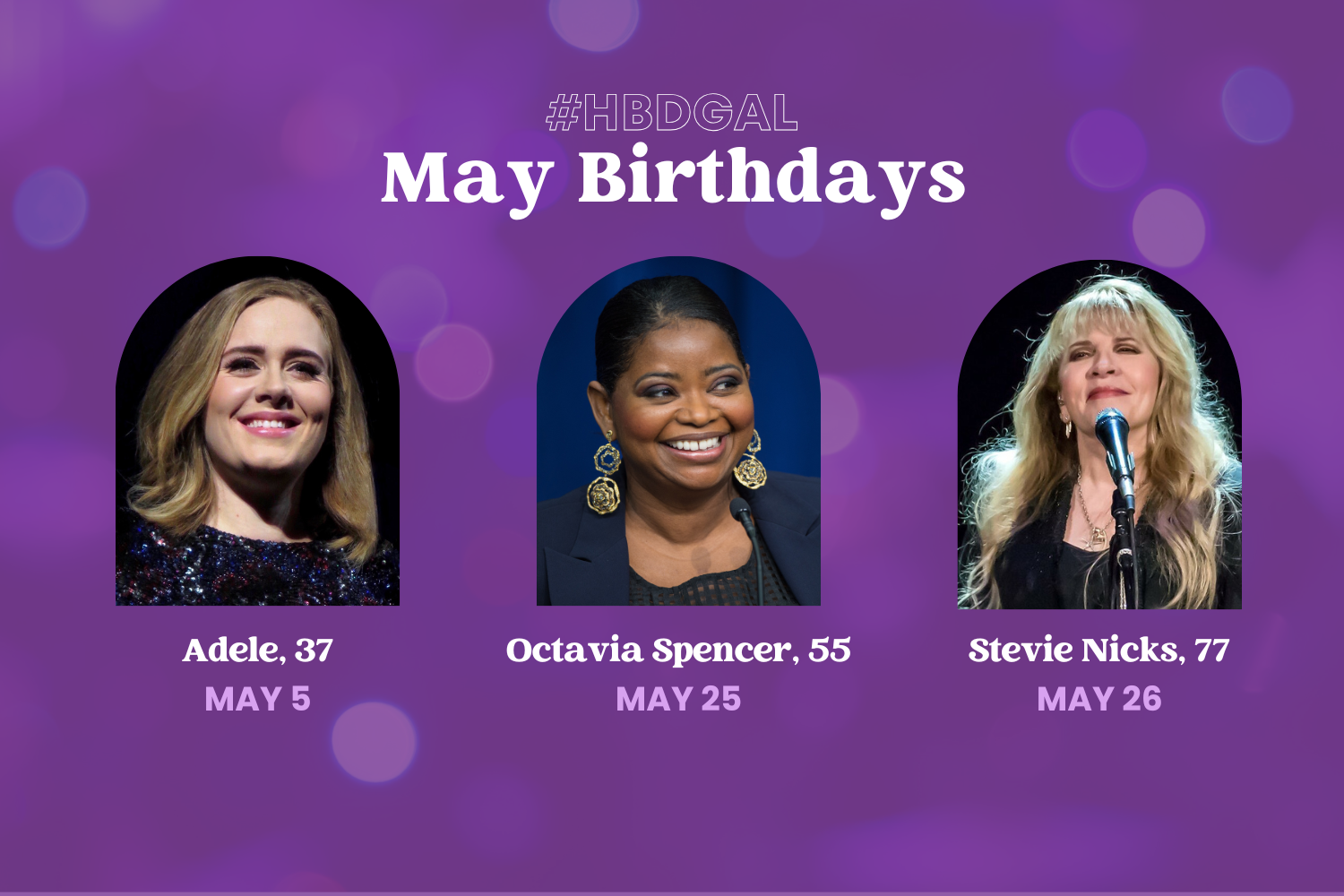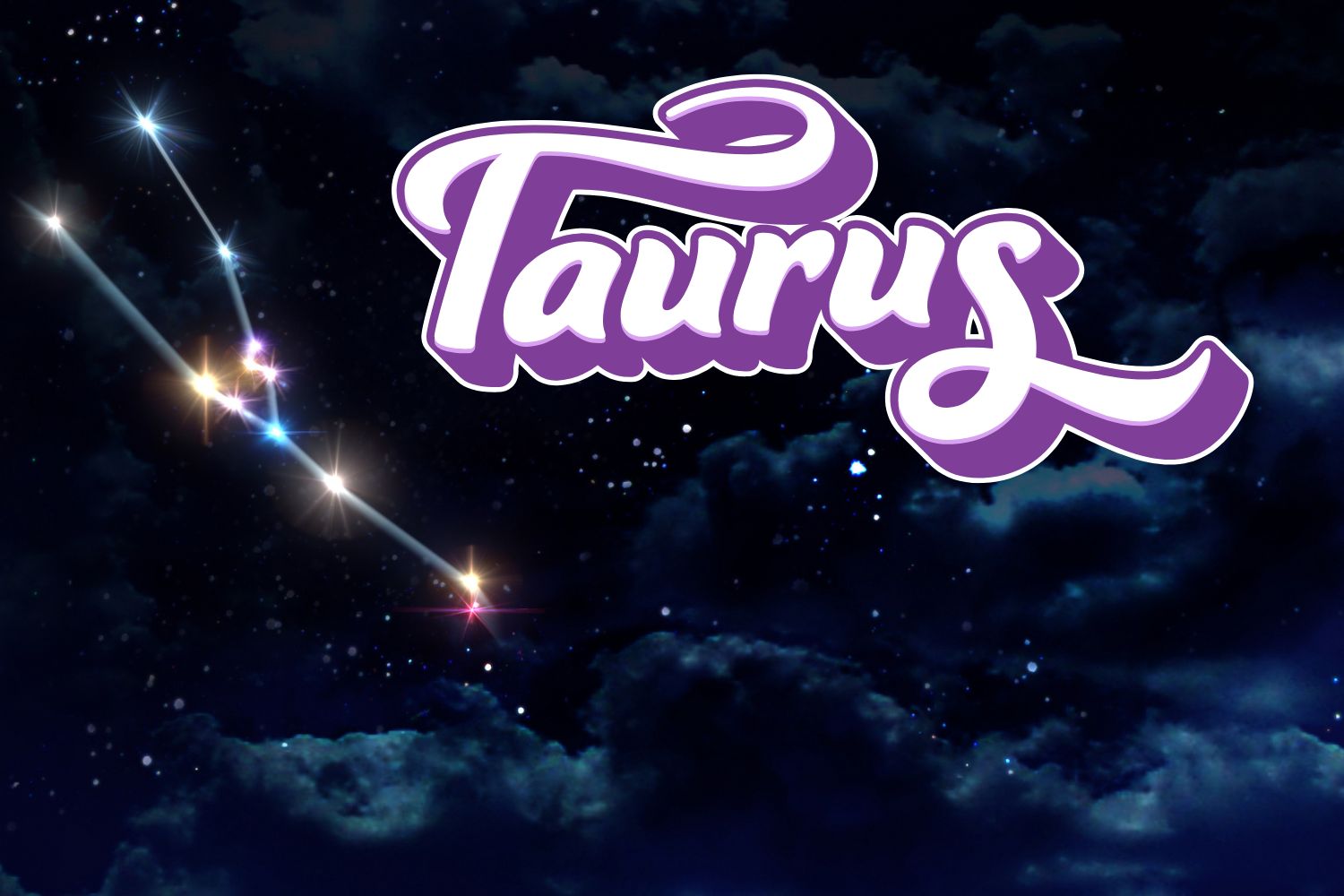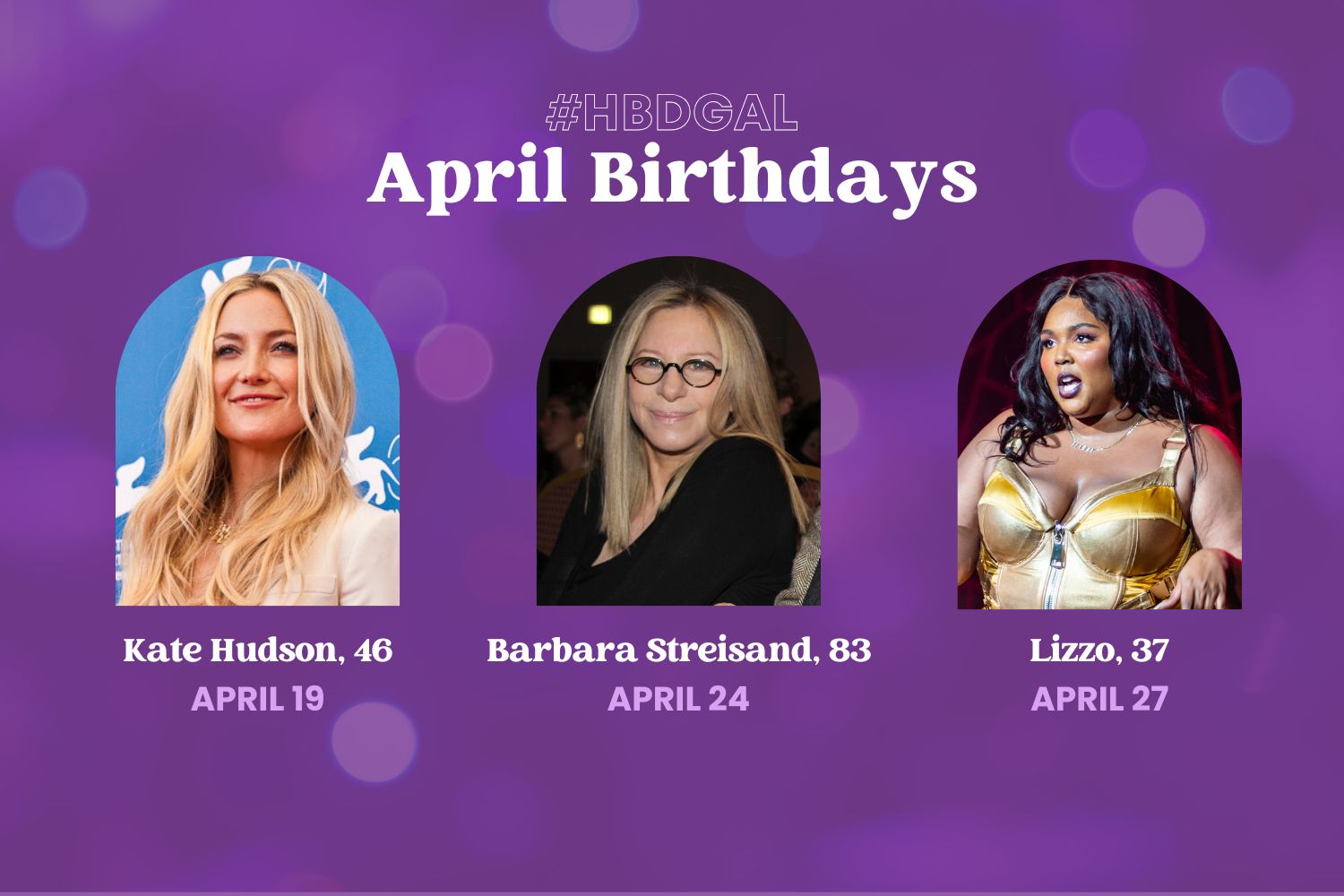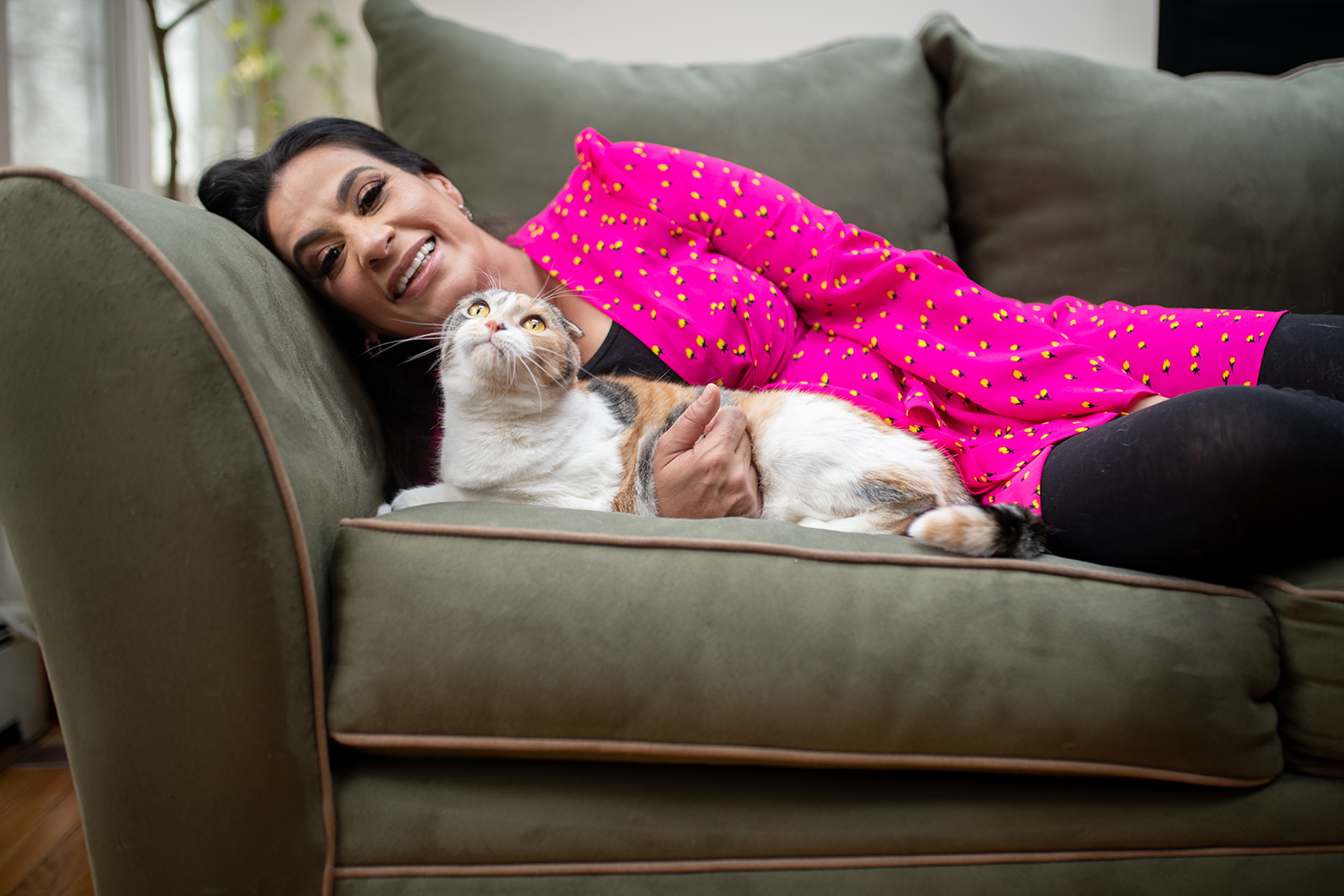
Maysoon Zayid continues to innovate as an Arabic comedian with cerebral palsy
In a 2014 TED Talk, Maysoon Zayid opens the floor with what she calls the “Oppression Olympics,” saying, “I’m Palestinian, Muslim, I’m a woman of color, I’m disabled…and I live in New Jersey,” to a laughing audience.
That TED Talk, “I got 99 Problems…and Palsy is Just One,” would change Zayid’s career, becoming the most viewed TED Talk of 2014 with 15 million views, and propelling her toward book deals and sitcoms.
Now known as one of America’s first Muslim women comedians, Zayid is also an author, activist, and actor. She not only represents the Arab community but also the disabled community, as she was born with cerebral palsy due to her mother’s doctor’s intoxication, a form of medical negligence, during her birth. Cerebral palsy isn’t genetic; it occurs after a newborn suffers a lack of oxygen or experiences head trauma during birth.
In her 2020 touring show, Find Another Dream, Zayid details the true story of her journey as a daughter of immigrants to a teen imagining her life as a soap opera star to finding her voice in comedy.
Along the way, she definitely found her voice. And it includes the best type of medicine — laughter.
I interviewed the 50-year-old comedian about her beginnings as a performer, her love for Miss Piggy, her fight for equality, and her avoidance of mean people.
What led you to become an actor and comedian? And how did your cerebral palsy influence your journey that resulted in you becoming a well-known name?
My parents couldn’t afford physical therapy, so they sent me to tap class. They couldn’t afford occupational therapy, so they sent me to piano. I was performing from a very young age, and I didn’t realize that I was getting standing ovations because people thought that, as a disabled kid, I was “inspirational.” I believed it was because I was extraordinarily talented and destined to be a star.
I had my eyes set on Broadway, and the daytime soap opera General Hospital. While, miraculously, both of those dreams have come true, I wouldn’t consider myself a well-known name. I’m much more Z-list.
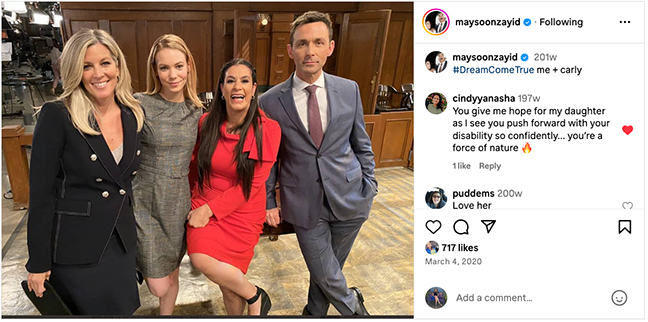
I loved Miss Piggy, and I cannot emphasize how much she influenced me and how much she comes through in my stand-up comedy. Lucille Ball was a huge role model for me. To this day, I wish I could do a show like I Love Lucy, but I’d rather be Ethel.
— Maysoon Zayid
Who were some of your influences growing up? Did you see people like yourself in comedy, TV, or on Broadway?
I loved Miss Piggy, and I cannot emphasize how much she influenced me and how much she comes through in my stand-up comedy. Lucille Ball was a huge role model for me. To this day, I wish I could do a show like I Love Lucy, but I’d rather be Ethel. I watched Oprah Winfrey nonstop growing up, and I’m sure there’s some of her that shines through my motivational speaking. Comedians: it was Richard Pryor — the original shaking comic of color — George Carlin, Mitch Hedberg, Margaret Cho, and Carol Burnett. In recent years, Beyoncé is who I watch the most for inspiration on how to be.
As we watch the horrors of what’s happening in Gaza, I’d like to touch on your time in Palestine, and your Palestinian heritage. How has being Palestinian shaped your world? Did the Arabic language influence your humor?
I pioneered stand-up comedy in the Arabic language, in the Arabic world. Prior to that, there were a lot of jokes and parodies, but it was unheard of for someone to just stand up and talk about themselves.
What I enjoy the most about doing stand-up comedy in Arabic is that the Arabic language is so much fun to play with. One word in Arabic can take an entire sentence to explain in English. That’s why I like doing Arabic stand-up more. And I learned my comedy from hanging out with my grandmothers and my aunties every summer growing up. There was no TV and no internet. All we did was gossip, and it was hilarious.
Being Palestinian also framed how I view diversity and equality. I think the reason that I’m so connected to fighting for equality for all is because I grew up seeing violent supremacy, both in America and in Jerusalem.
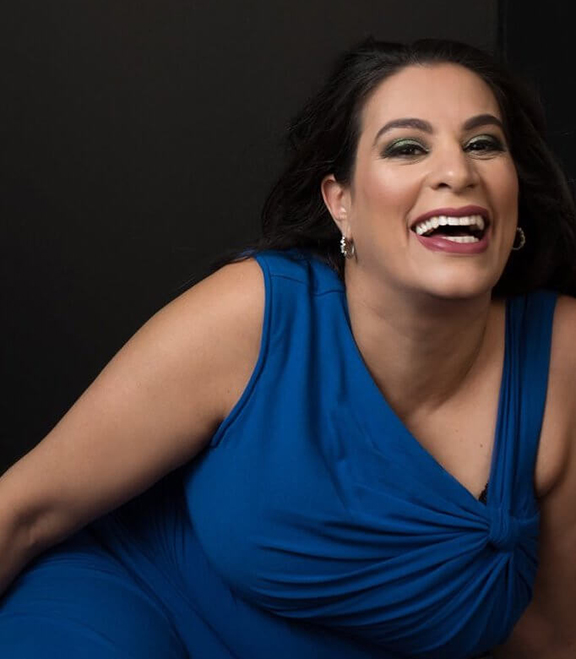
Tell us about your web series, Advice You Don’t Want to Hear, and how you filmed recent seasons in the West Bank.
I shot the first season of Advice You Don’t Want to Hear at Arizona State University, my alma mater, while I was teaching stand-up comedy there. All other seasons were shot in Palestine. The reason I did this was because the images we see of Palestinians on TV are always grim. There’s destruction and death, and I wanted to show the world who we are when we’re given the chance to live and exist.
Your graphic novel, Shiny Misfits, will debut in April 2024! Can you share anything about that process? What were some challenges, and what were some highlights?
Shiny Misfits is my favorite thing I’ve ever done. Ever. My incredible editor at Scholastic, Emily Seife, had heard my memoir, Find Another Dream, and thought I would be a good voice for a middle-grade book. What she didn’t know was that I was a die-hard lifelong comic book fan. Shiny Misfits is really for all ages, and I know, I wrote it, but I’m telling you, it is super funny.
My illustrator, Shadia Amin, is like my long-lost sister. She’s Colombian-Palestinian. She drew Olive Oyl and Spider Ham, and she drew Shiny Misfits exactly the way I pictured it. The biggest challenge was doing the audio descriptions for the Audible version of the book. They say a picture is worth a thousand words, but you only get about 10 per panel. It was definitely the hardest part of the process, but I think I nailed it, and the audio version is going to be a fantastic, accessible companion to the graphic novel.
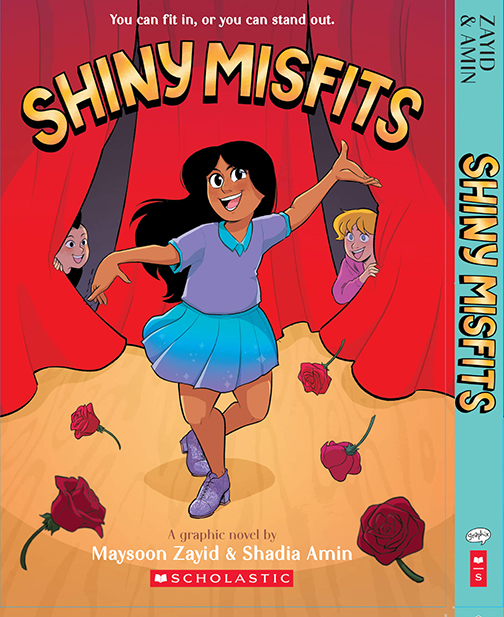
Can you talk to me about your nickname for the disability community, DisCo, and the connections you’ve made with fans who look up to you as a voice and advocate? Is there a lot of pressure with advocacy work? Or does using comedy open up those doors with more humor, and less pressure?
There is so much pressure in advocacy work, especially when working with a disability. The community is so diverse. I have no idea what the lived experience of, say, a deaf person is, even though we are part of the same minority group. So, it’s so important in my advocacy work to not answer for others and focus more on our rights and needs, in general. Things like access to health care. It is extraordinarily expensive to be disabled in the United States of America. Or, globally, the right to a free education, which so many disabled children have no access to.
DisCo is a fun abbreviation for “Disability Community,” and the symbol is a disco ball. The wheelchair symbol — that is kind of the universal symbol for the disability community — didn’t feel very inclusive, especially of invisible disabilities. A disco ball is hundreds of pieces of different-sized glass, reflecting light, and the emoji is so cute.
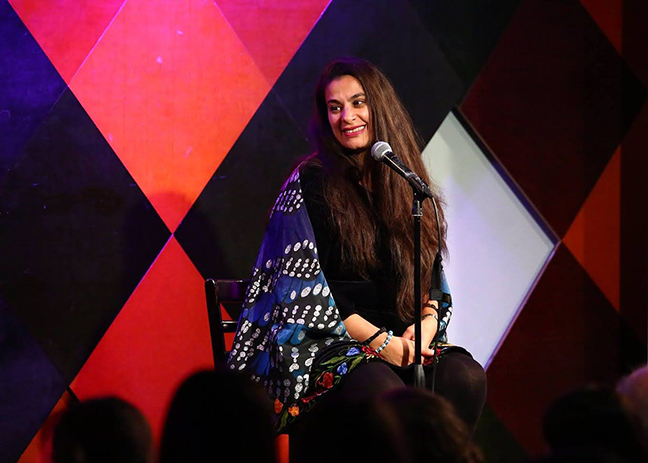
Can you talk about the changes and advances you’d like to see for people who live with a disability?
I want us to focus more on making disabled people’s lives great, instead of healing, curing, or erasing us. I want the world to embrace universal, accessible design. Make things accessible from the beginning — not as an afterthought — and consult disabled people.
As a comedian, I tour a lot of college campuses worldwide, and higher education is doing a terrible job at including disabled students. Campuses are inaccessible. Professors are ignoring accommodations. It’s a worldwide issue that needs addressing.
What’s your advice for women over 40, especially women who are over 40 who live with a disability?
Being single is so much more fun than being miserable in a relationship. Don’t hang out with mean people, even if they’re your family. You are not required to spend your time and energy with people who make you hate yourself.
Save money. Retirement is way closer than we ever imagined, and much more out of reach. It’s not too late to randomly have a kid by yourself. Go for it. But also, it is totally fine to just have a cat named Beyoncé, like me. As long as you’re happy, let the world judge you all they want.
“Being single is so much more fun than being miserable in a relationship. Don’t hang out with mean people, even if they’re your family. You are not required to spend your time and energy with people who make you hate yourself.”
— Maysoon Zayid
Lastly, what’s in store for you in 2024? What are you working on, where can we see you perform, and anything else you’d like to share?
2024 is the year of the Shiny Misfit. The book comes out on April 16, 2024, and there’s gonna be all sorts of events and school visits. It’s gonna be a party!
Another exciting thing for 2024 is that we are continuing to celebrate the New York Arab American Comedy Festival‘s 20th anniversary. I am the co-founder and co-executive producer, along with Sirius XM host Dean Obeidallah. We just did a sold-out show at The Town Hall Theater on Broadway, and we have shows coming up at the Palace of Fine Arts in San Francisco, at Gotham Comedy Club in New York City, and at the Kennedy Center in Washington D.C.
I never stop touring my stand-up comedy, so I’ll be doing that, too, and people can find out when I’m going to be in their city on my website.
I’m also going to see Taylor Swift live. I did not achieve that goal when she was stateside this year, but I have high hopes for down under or up north! I’ve seen Dave Matthews over 500 times. I need to see Taylor Swift at least once.
Visit Maysoon’s website for updates on the Shiny Misfits release, lots of what she calls “Crip Clips” of her comedy, and upcoming tour dates!

